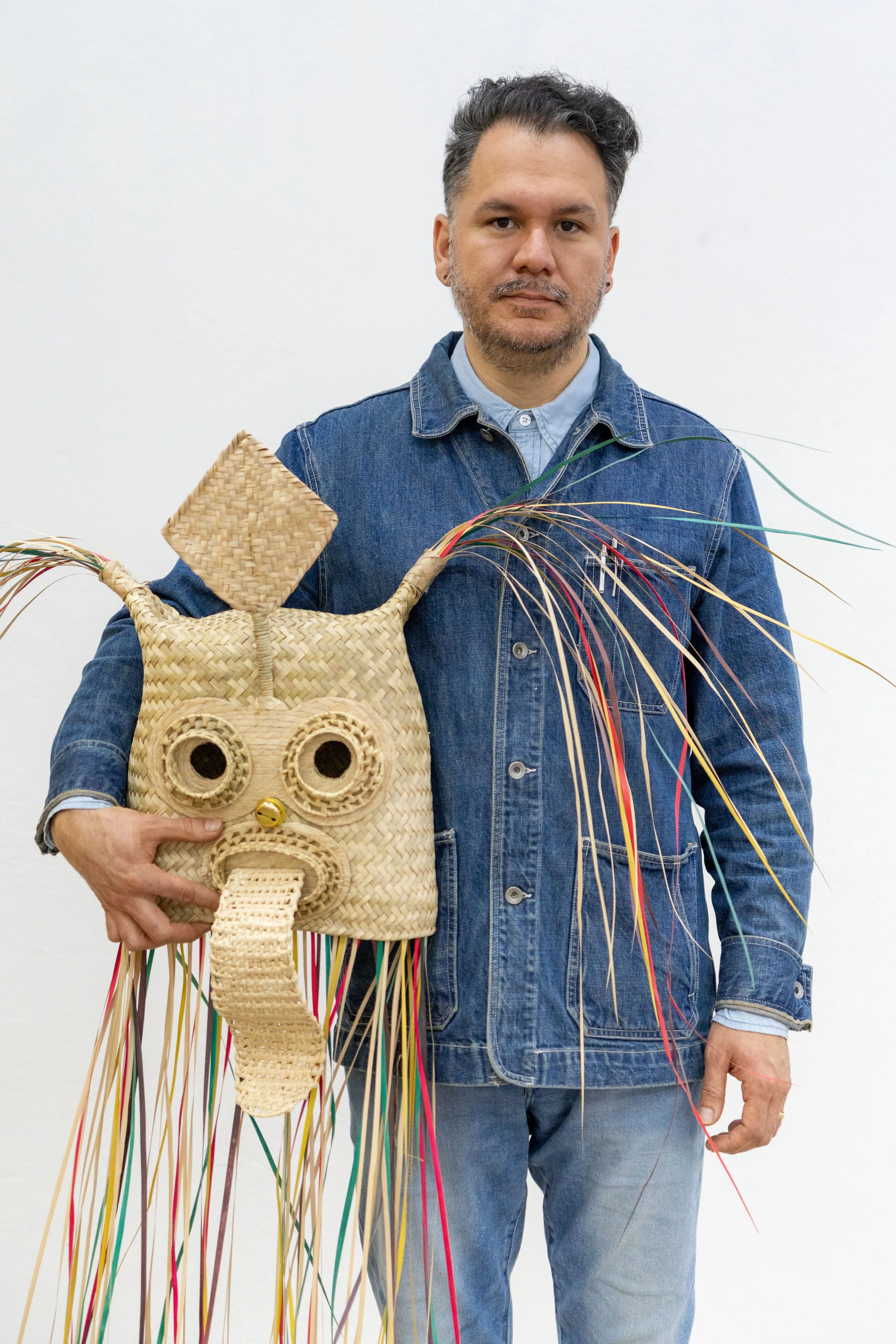“Como artista nacido en Jalisco, México, y residente en EE.UU., mi identidad como inmigrante y estadounidense implica vivir en un espacio de constante alienación. Inspirándome en la obra de W.E.B. DuBois, The Souls of Black Folk (1903), reflexiono sobre la dualidad que enfrentan los inmigrantes latinos: habitar un país adoptivo donde no siempre son reconocidos como iguales. En una sociedad predominantemente blanca, el estatus migratorio se convierte en una experiencia racializada que desafía la dignidad. Este “doble conocimiento” —vernos a nosotros mismos a través de los ojos de otros— está en el núcleo de mi práctica artística, que busca dar voz a esta sensación y destacar su relevancia para los inmigrantes y otros grupos marginados.
Me interesa experimentar con medios artesanales como tejido de. palma, textiles, cerámica, metal, madera y vidrio, preservando técnicas tradicionales mientras abordo temas contemporáneos. Aspiro a imaginar un futuro alternativo donde las personas racializadas sean visibles, valoradas y reconocidas por sus contribuciones, desafiando narrativas coloniales y reimaginando un mundo más inclusivo.”
“As an artist born in Jalisco, Mexico, and living in the U.S., my identity as an immigrant and an American involves living in a space of constant alienation. Inspired by W.E.B. DuBois’s The Souls of Black Folk (1903), I reflect on the duality that Latinx immigrants face: inhabiting an adopted country where they are not always recognized as equals. In a predominantly white society, immigration status becomes a racialized experience that challenges dignity. This “double knowledge”—seeing ourselves through the eyes of others—is at the core of my artistic practice, which seeks to give voice to this sensation and highlight its relevance for immigrants and other marginalized groups.
I am interested in experimenting with artisanal media such as palm weaving, textiles, ceramics, metal, wood, and glass, preserving traditional techniques while addressing contemporary themes. I aspire to imagine an alternative future where racialized people are visible, valued, and recognized for their contributions, challenging colonial narratives and “reimagining a more inclusive world.”

